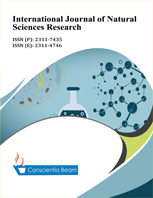Comparative Study of the Error Trend and Seasonal Exponential Smoothing and ARIMA Model using COVID-19 Death Rate in Nigeria
DOI:
https://doi.org/10.18488/63.v10i1.3031Abstract
In the last two years, COVID-19 had claimed millions of life in Nigeria and the world at large. It is an established global health emergency of our time and an ongoing threat faced by the world up till now. This study aims to determine the trend, fit an appropriate Error Trend and Seasonal (ETS) exponential smoothing and ARIMA model to the COVID-19 daily deaths in Nigeria. Dataset on the daily COVID-19 confirmed death cases were utilized in the study. The data was extracted from the Nigerian Centre for Disease Control (NCDC) online database from 10th July 2020 to 2nd December 2021. Autoregressive Integrated Moving Average (ARIMA) and twelve (12) (ETS) exponential smoothing techniques were compared based on the dataset. The performance of the ARIMA and ETS exponential smoothing methods was investigated using the Akaike Information Criterion (AIC), Bayesian Information Criterion (BIC), Hannan Quinn Information Criterion (HQC), and AMSE selection criteria. The best time series modeling for the coronavirus (COVID-19) epidemic in Nigeria was the ARIMA (0,1,0) because its model selection criteria showed that it had the lowest value of; AIC=2863.51, BIC= 2866.90, HQ = 2866.90, and AMSE = 0.55471. ARIMA (0,1,0) model is preferred among the thirteen (13) competing models based on daily confirmed deaths due to COVID-19 in Nigeria.

